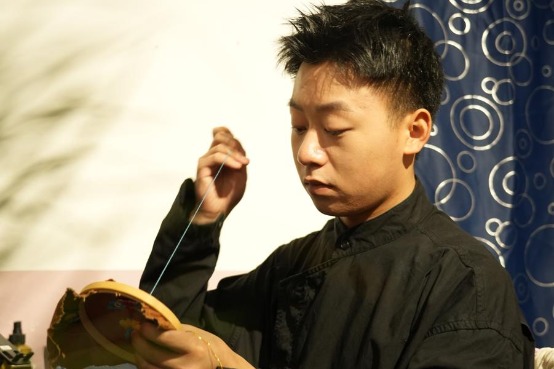Chinese scientists develop engineered bacteria capable of degrading 5 organic pollutants

SHENZHEN -- Chinese scientists have successfully engineered a novel bacteria strain capable of simultaneously degrading five types of organic pollutants in high-salinity industrial wastewater, and their findings have been published in Nature online.
The breakthrough in synthetic biology was achieved by a joint research team from the Chinese Academy of Sciences' Shenzhen Institutes of Advanced Technology (SIAT), and Shanghai Jiao Tong University.
Industrial wastewater with high salinity, primarily discharged from chemical plants and oil-and-gas extraction facilities, contains complex contaminants such as suspended solids, organic compounds, heavy metals, toxic chemicals and nutrient salts.
While certain naturally occurring microbes can degrade some of these pollutants individually, their efficiency is limited -- each strain typically targets only one or two specific contaminants. Faced with mixed pollutants like oil, heavy metals or radioactive substances, natural microorganisms often prove ineffective.
To address this challenge, the research team employed synthetic biology techniques to engineer a bacteria strain with modular metabolic pathways. By integrating five artificial degradation pathways into a single bacterium, they enabled the simultaneous breakdown of biphenyl, phenol, naphthalene, dibenzofuran and toluene -- representative aromatic pollutants.
Experimental validation demonstrated the engineered strain's remarkable efficiency: Within 48 hours, it achieved over 60 percent removal of all five target pollutants, with the complete degradation of biphenyl and near 90 percent degradation rates for complex compounds like toluene and dibenzofuran.
This engineered bacterium holds significant potential for environmental applications, including oil spill remediation, industrial site restoration, and even microplastic biodegradation, said Dai Junbiao, a corresponding author of the study and guest researcher at SIAT.
- Chinese scientists develop engineered bacteria capable of degrading 5 organic pollutants
- Wolfpack always on hand to help whenever disaster strikes
- China stresses efforts to curb occurrence of serious accidents
- More young travelers opt for chills over thrills
- Never giving up hope
- Xizang promotes personal carbon accounts to support green finance





































